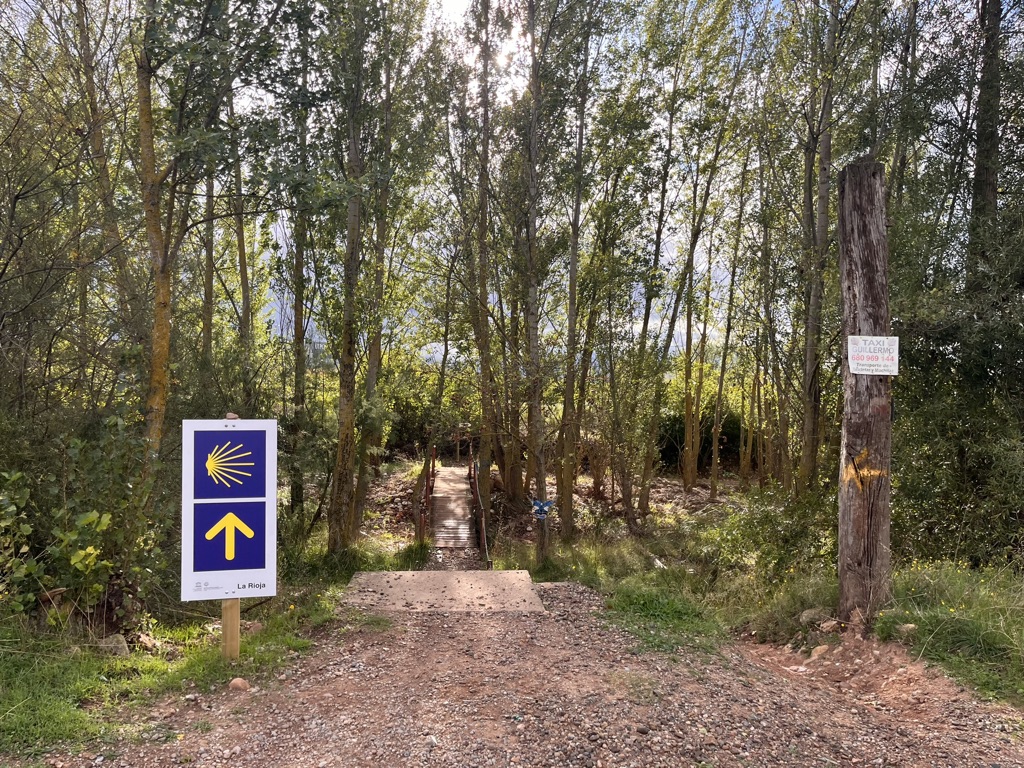The Camino de Santiago is a profoundly personal journey, with as many ways to walk it as there are pilgrims. And there’s no single “right” way to make this journey. If you feel overwhelmed and concerned about your age and fitness level or daunted by carrying your gear, alternative routes and support options exist.
distance and ROUTE section flexibility
Work, family, personal obligations, and commitment may limit a long-distance Camino walk, but the wonderful truth is that no rule requires you to walk the entire route in one go. Thousands of pilgrims choose a flexible approach to completing the Camino:
- Walking in sections: Walk over multiple years, breaking it down so you are walking on vacation or weekends.
- Short Distances: Walk fewer daily miles.
- NOTE: (You must walk at least 100 km to receive your Compostela Credentials) The journey must be resumed from where you previously stopped; skipping sections would invalidate your Compostela.

SOME POPULAR SECTIONS ARE:
- From Saria on the French route, around 110 km, it will take around 4-5 days. Although it is more crowded, this section has excellent infrastructure and a nice vibe.
- Taking the Portuguese route from Tui, it will take 5-6 days to walk approximately 120 km.
- The English route has the shortest 3-6 days from A Coruña or Ferrol Spain.
- Finisterre and Muxia route, 90-120 km. This route ends at the “End of the World,” where you can obtain Finistrrana or Muxiana certificates. I am sorry I did not have time to extend my Camino to include Finisterre; next time!
I suggest you read the following:
The Camino Route. What path should you take, and when should you go?
DOES AGE MATTER?
Do you dream of walking the Camino and hesitate, believing you are too old or unfit? I challenge that notion with some inspiring facts:
- The average age is closer to 60 than 20 of those walking the Camino.
- The largest demographic is ages 46-65.
- Pilgrims in their 70s and beyond regularly complete the journey.
If you are on medication, have a serious illness, or have a handicap, please consult your doctor before embarking on this journey.

Women on the camino
Not only do women walk the Camino, they have become the majority, and many choose to walk it solo. Consider:
- Safety: The Camino has a unique blend of solitude and community. While walking alone, you’re rarely truly isolated- pilgrims are consistently nearby, creating a natural safety network. Be sure to maintain a comfortable distance from other pilgrims while ensuring you’re never entirely out of sight or without support.
- Marked path: The familiar yellow arrows and scallop shells guide pilgrims along the Camino, offering a reliable navigation system. Yet, even with these markers, staying alert is crucial, for moments of deep reflection can still lead you astray. Trust the path, but keep your eyes open.
- Good Infrastructure: The most popular routes continue to evolve, offering pilgrims comfortable and well-supported Camino. Modern infrastructure provides accommodations, rest stops, dining options, medical services, and convenient water stations- ensuring pilgrims can focus on their pilgrimage experience.

Digital Safety Net
Don’t worry about not staying connected with family and friends. Internet access along the Camino has become essential for pilgrims, enhancing navigation and safety. With a connected smartphone, you can:
- Use pilgrim-specific apps. I used and love the ‘Buen Camino’ app.
- Access online maps and guidebooks
- Stay in touch with family back home
- Stay in touch with fellow pilgrims on the Camino
- Reserve accommodations
- Make arrangements for luggage transport
- Listen to music or podcast
- Take photos
- Share your journey in real-time. I used Polarsteps for this feature!
- Call a taxi
- Call emergency services
- Local SIM cards or eSIM (purchased before departure)
- International plans from your home provider
- Free Wi-fi in alberques, cafes, and public spaces
Luggage Transport Services
You decided, and your plans for the Camino began, but the thought of carrying your gear was daunting.
Seasoned pilgrims suggest carrying about 10% of your body weight, but can you? Should you? Will you? Is there an alternative?
One popular option is sending backpacks ahead:
- Convenience: Services like Jacotrans, CaminoFacil, and Correos offer daily luggage transport, and it’s very reasonably priced.
- Accessibility: This option makes the Camino possible for those with physical limitations or preferences for lighter travel.
- Carry a smaller, lighter pack with your day essentials.

The Spirit of the Camino
- Personal Journey: The Camino is a unique experience for everyone, shaped by individual needs and preferences.
- Adaptability: It’s perfectly acceptable to change your approach as you progress on your journey. Flexibility can enhance your experience.
- Non-judgment: Embracing a non-judgmental attitude is fundamental to the spirit of the Camino.
During my walk, I encountered many wonderful, kind, and respectful pilgrims. However, I did overhear some judgmental comments at times. My advice? Focus on drowning out those negative voices with the true essence of the Camino. I made it a priority to concentrate on my own journey rather than judging others. By appreciating my surroundings and fully immersing myself in the experience, I found joy and fulfillment. Remember, the Camino is about personal growth and connection, so let go of judgment and embrace your path!
I hope this post helps you look beyond the obstacles and self-made issues. Don’t doubt your potential; this journey offers more than a destination; it promises personal discovery. Your Camino is not about perfecting; it’s about taking the first courageous step your way.
How about you?
Your pilgrimage awaits you, when do your plans begin?

